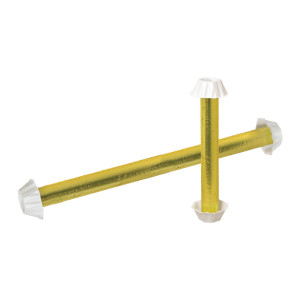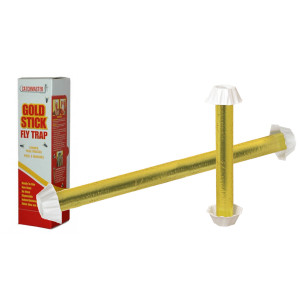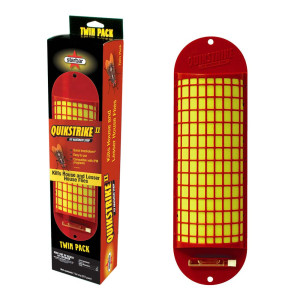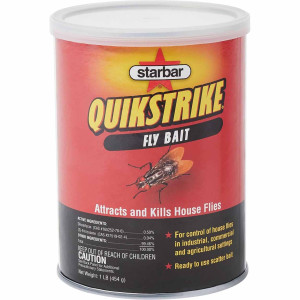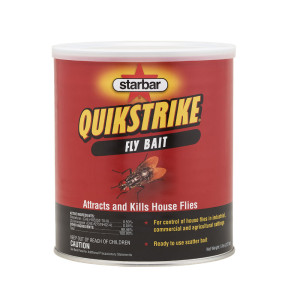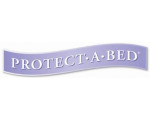House Flies

The house fly and other types of “filth flies” can become nuisance pests, but also are important for their potential to harm humans and animals. House flies, for example, can spread diseases such as food poisoning and dysentery. Flies, including stable flies and mosquitoes (which are also classified as flies, or Diptera), can inflict painful bites while feeding on the blood of humans and other animals, and some species transmit disease.
The habits of filth flies favor the spread of bacteria and other disease-causing organisms. Filth flies often feed and lay eggs on garbage, manure and carrion before contaminating human foods and food preparation surfaces by landing on them. When feeding, house flies regurgitate their stomach contents onto food to liquefy it before ingesting it. They also may contaminate food and surfaces by defecating on them.
Catchmaster 908 GLOstik Flying Insect Trap + Refill
GLOStixs - Catchmaster 908 GLOstik Flying Insect Trap and Refill Please note that order totals less..
$11.67
Catchmaster 912 Mini Gold Stick Fly Trap 10in - 12 per case
Catchmaster 912 Gold Stick Fly Trap 10.5" (12 Traps per Case)Gold Stick 912 Mini Glue Trap ..
$46.85
Catchmaster Gold Stick 962 Large Glue Fly Trap and Fly Pheromone Attractant (Case of 24)
Gold Stick 962 Large Glue Fly Trap – Large Fly Trap (case lot)Model 962 - 24 in long (24 per case) -..
$132.77
Gardner Insect Light Trap Flyweb ILT Fly Light FW-9
Gardner Flyweb Fly Light FW-9 The FlyWeb Classic is designed for indoor use wherever there are flyi..
$39.39 $40.39
Nibor-D Insecticide Foam + IGR (21 oz)
Nibor-D Insecticide Foam + IGR (21 oz) CanNibor-D Insecticide Foam + IGR reduces fly & cockroach..
$35.50
PT Alpine Pressurized Fly Bait 16oz can
PT Alpine Pressurized Fly Bait 16oz canPT Alpine Pressurized Fly Bait – a fast-acting, ready-to-use ..
$36.95
Quikstrike Fly Abatement Strip II (2 Pack)
Quikstrike® Fly Abatement Strip II Please note that order totals less than $30 will be charg..
$21.48
QuikStrike® Fly Bait 1lb
QuikStrike® Fly Bait 1lbAlso available in 5lb. Order a case of 12 and saveQuikStrike® Fly..
$18.00
QuikStrike® Fly Bait 5lb
QuikStrike® Fly Bait 5lbAlso available in 1lb. Order a case of 6 and saveQuikStrike® Fly ..
$56.06


